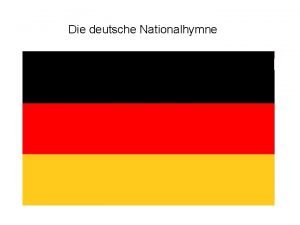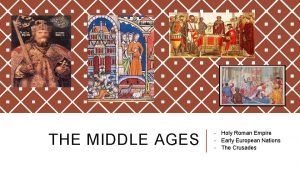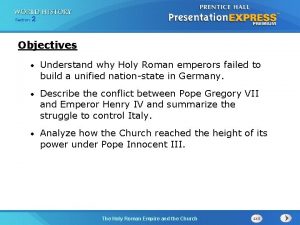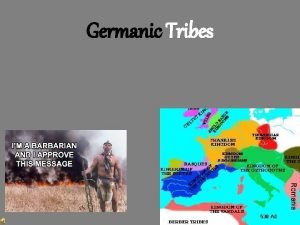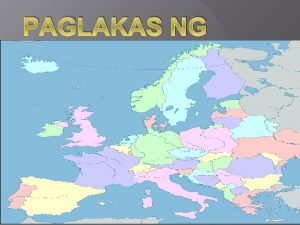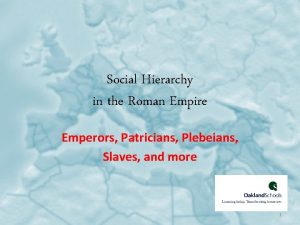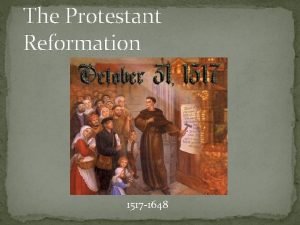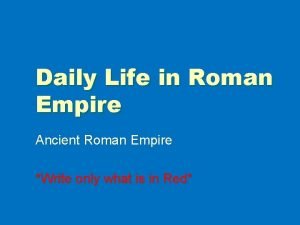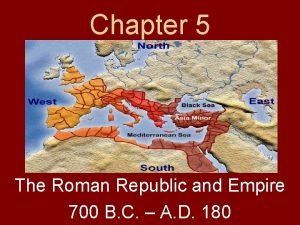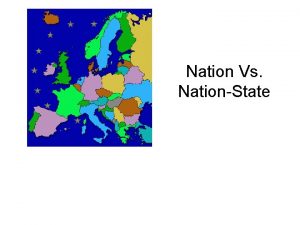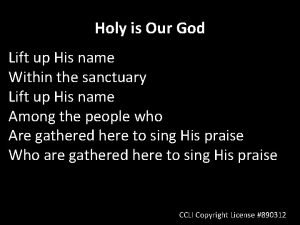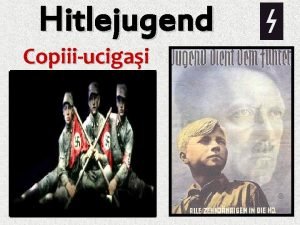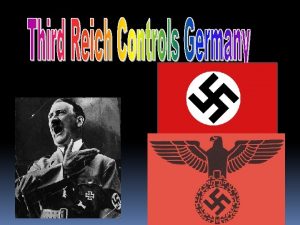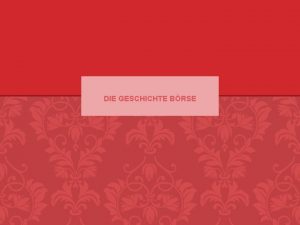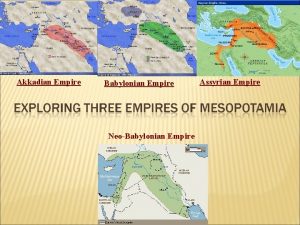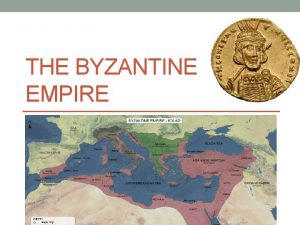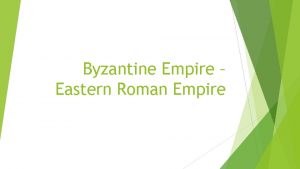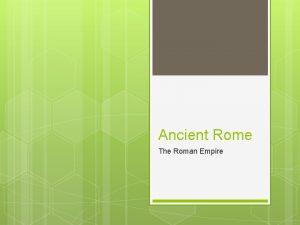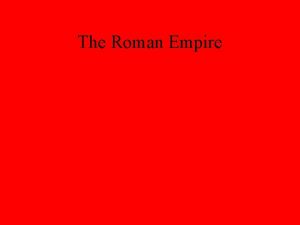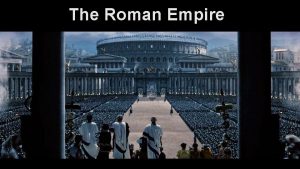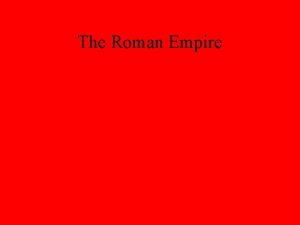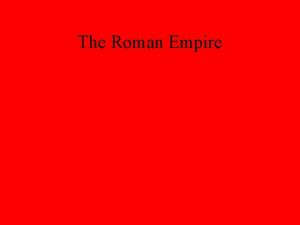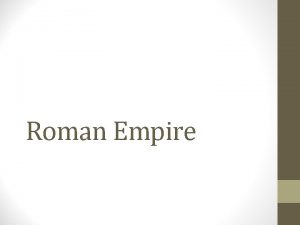Holy Roman Empire Heiliges Rmisches Reich Deutscher Nation

























- Slides: 25


Holy Roman Empire • Heiliges Römisches Reich Deutscher Nation= Holy Roman Empire (Reich) • Extended its power from 843 -1806 and included lands in what are now Germany, Austria, Switzerland, Liechtenstein, Belgium, the Neth. , Lux. , Czech as well as eastern France, northern Italy and western Poland

Until 1508 emperors of the empire couldn’t be in power until the Pope crowned them Reichstag was the legislative branch which received increasing power from late 15 th C. to 1806; princes, lay people, bishops had votes

Germanic tribes • On the east side of the Holy Roman Empire, the Germanic tribes of Bavarians, Alamanns, Franks and Saxons formed a confederation • With Luther’s reforms in 1517, dukes of northern Germany took advantage of the division and established Protestant areas while southern Germany stayed as Catholic

• This began the 30 Years War from 1618 -1648 • The war resulted in large areas of Germany being laid waste, in a loss of something like a third of its population, and in a general impoverishment

• The causes were the conflicts between Catholics and Protestants, the efforts by the various states within the Empire to increase their power


Peace of Westphalia 1648 -the Netherlands gained independence from Spain, ending the Eighty Years War - Sweden gained territories of modern Germany -the power of the Holy Roman Power was lessened -the rulers of the German states were able to determine the religion of their lands

- The treaty gave Calvinists legal recognition - Three new great powers arose from this peace: Sweden, the United Netherlands and France - the Holy Roman Empire would no longer have secular dominion over the entire Christian world, the nation state became the most powerful institution

Treaty of the Confederation of the Rhine 1806 - formed initially from sixteen German states by Napoleon after he defeated Habsburg's Francis II and Russia's Alexander I in the Battle of Austerlitz - Holy Roman Emperor Francis II resigned when Napoleon won the war in 1804 and the Holy Roman Empire was dissolved

• was above all a military alliance; the members had to supply France with large numbers of military personnel. • In return the state rulers were given higher status: For their cooperation states could also be made larger by incorporating smaller imperial estates.

Who joined? • four kingdoms, five grand duchies, thirteen duchies, seventeen principalities and the Hansa towns of Hamburg, Lubeck and Bremen • It collapsed with Napoleon’s defeat against Russia in 1813


Congress of Vienna 1815


Challenges to Napoleon • Impact of nationalism: many Europeans favoured their own linguistic and cultural nation over his leadership • Resistance in Spain: France occupied Spain and spent a lot of energy to stop nationalists • War with Austria: Battle of Austerlitz

• The Congress was concerned with determining the entire shape of Europe after the Napoleonic wars • Great Britain, Russia, Prussia, Austria, France worked out the conditions of the Congress


Territorial changes • Russia was given most of the Duchy of Warsaw(Poland) and was allowed to keep Finland until 1917 • Prussia was given two fifths of Saxony, parts of the Duchy of Warsaw (the Grand Duchy of Posen), Danzig, and the Rhineland

• A large United Kingdom of the Netherlands was created for the Prince of Orange • Germany went from 300 states of the Holy Roman Empire into thirty -nine states making up a loose German confederation under the leadership of Prussia and Austria

• The Congress helped to provide peace in Europe for almost 100 years until 1914 except for the Austro Prussian war of 1869 and Franco-Prussian war of 1870

• The Treaty of Prague on August 23, 1866 resulted in the dissolution of the German Confederation, Prussian annexation of various provinces such as Bavaria and Frankfurt, and the permanent exclusion of Austria from German affairs. This left Prussia free to form the North German Federation in 1867


Franco-Prussian War • 1870 -1871: Prussians, as the major influence of the German confederation, wanted to place a German on the Spanish throne but the French were against this so they challenged it; Otto von Bismarck, the Chancellor of Prussia, made a bias statement of the negotiations to agitate the French so they declared war

• Included a series of battles fought across northern France, ending in a siege of Paris, the French emperor captured resulting in a bloodless revolution and France becoming the only republican power in Europe, finally the German states united to become the nation state of Germany
 Deutscher wein und deutscher sang
Deutscher wein und deutscher sang Holy holy god almighty the great i am
Holy holy god almighty the great i am Holy are you lord
Holy are you lord Holy roman empire def
Holy roman empire def The holy roman empire and the church section 2
The holy roman empire and the church section 2 Pepin the hunchback
Pepin the hunchback Impluwensya ng bourgeoisie
Impluwensya ng bourgeoisie Ancient rome social hierarchy
Ancient rome social hierarchy Calvinism map
Calvinism map The holy roman empire and the church section 2
The holy roman empire and the church section 2 Daily life roman empire
Daily life roman empire Roman republic vs roman empire
Roman republic vs roman empire Difference between roman republic and roman empire
Difference between roman republic and roman empire Nation vs state
Nation vs state Example of nation
Example of nation Nation vs state
Nation vs state Lift up his name
Lift up his name Holy hol
Holy hol What is a holy spirit
What is a holy spirit Deuteronomy 20:8
Deuteronomy 20:8 Be holy as i am holy
Be holy as i am holy Ein volk ein reich ein führer
Ein volk ein reich ein führer Joshua reich
Joshua reich Fuhrerprincip
Fuhrerprincip Audrey reich
Audrey reich Harriet reich uchtdorf
Harriet reich uchtdorf
